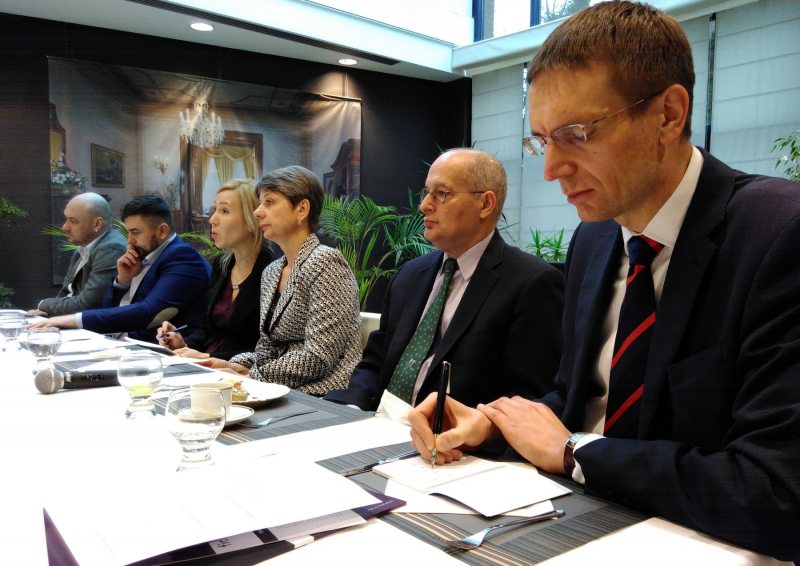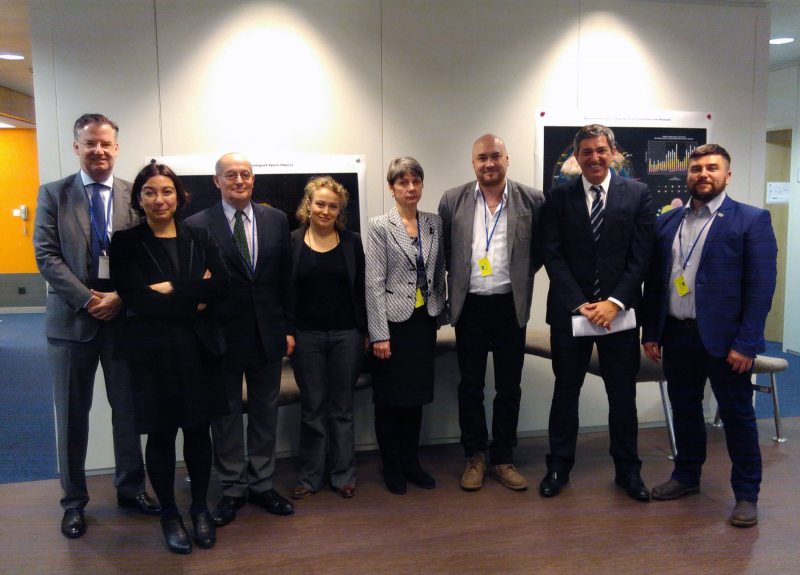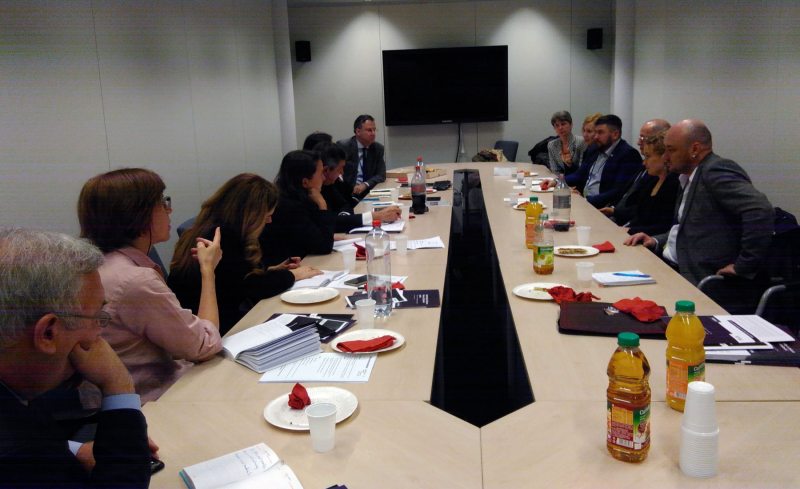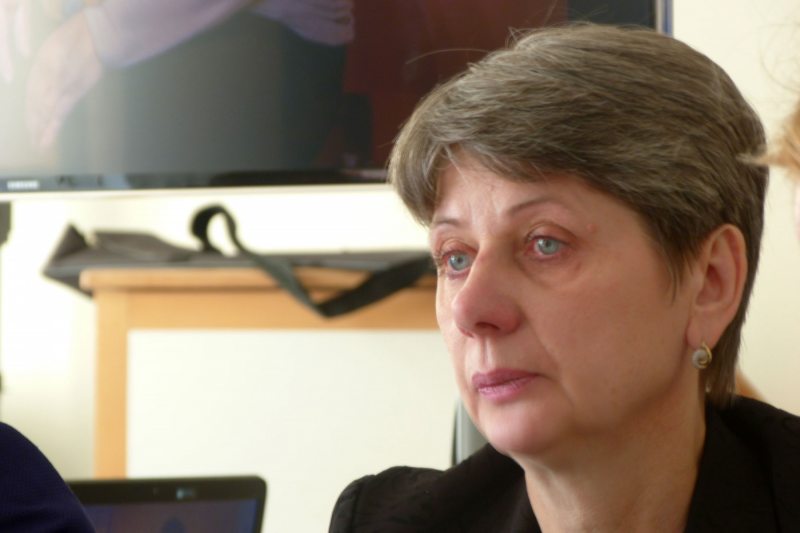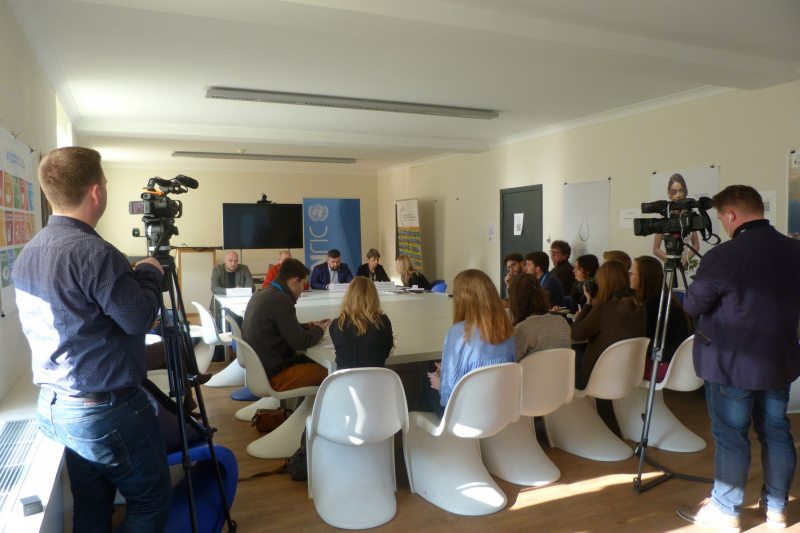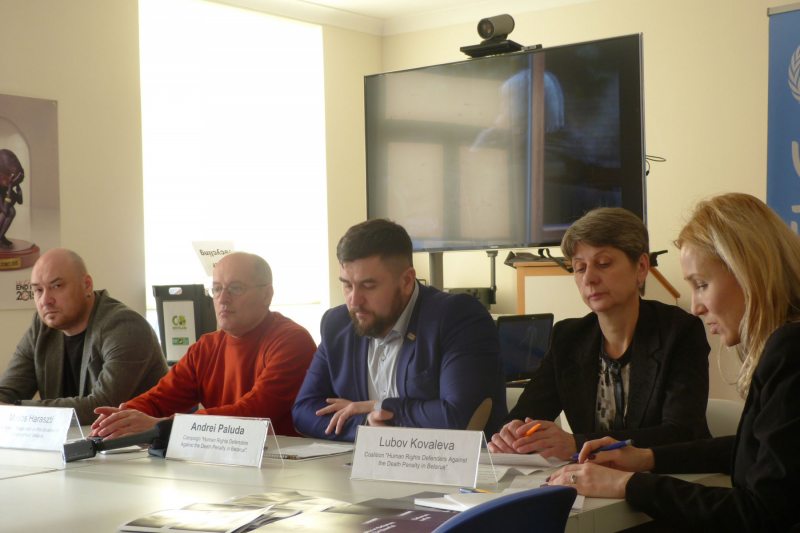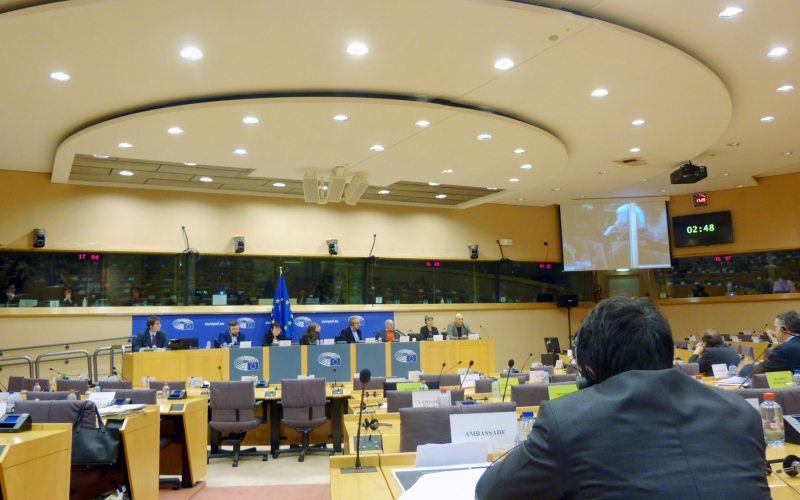Human rights defenders: It is vital that Belarus remains on EU agenda Photo
On February 7, a number of locations in Brussels hosted meetings of EU officials with the human rights defenders of Viasna, representatives of the International Federation for Human Rights (FIDH), the UN Special Rapporteur on Belarus, as well as the mother of Uladzislau Kavaliou, who was executed in 2012. The key issue for the discussion was the death penalty in Belarus.
Valiantsin Stefanovich, Andrei Paluda, Sasha Koulaeva, Miklós Haraszti and Liubou Kavaliova briefed representatives of EU embassies to the European Union and two working groups, COHOM (Working Party on Human Rights) and COEST (Party on Eastern Europe and Central Asia). The event was organized by the FIDH and hosted by the embassy of the Czech Republic.
The human rights activists discussed the key aspects of the topical issue and presented a joint report by FIDH and Viasna, “Death Penalty in Belarus: Murder on (Un)lawful Grounds”.
“The briefing was attended by representatives of almost all the EU countries, those were either ambassadors or secretaries. And the discussion was quite wide. Speaking about the overall situation in Belarus, we stressed that the authorities continue a policy of ‘mild practices’, that no system changes, unfortunately, have happened and that we expect from the authorities to launch concrete steps to improve the human rights situation in the country. It’s precisely a moratorium on the death penalty that could be an important step in this direction,” said Valiantsin Stefanovich.
The human rights activists then met with the EU Special Representative for Human Rights Stavros Lambrinidis and the European External Action Service’s Directors for Eastern Partnership and Human Rights.
Liubou Kavaliova, as a direct victim of the death penalty, called on EU officials to maintain a principled position on capital punishment in Belarus.
The mother of Uladzislau Kavaliou, whose right to receive the body of her son and information about the place of his burial was violated by Belarus, according to the UN Human Rights Committee, spoke about these inhumane aspects of the death penalty at meetings with European journalists and MEPs held on February 6. Meanwhile, the European Parliament lobby, where MEPs could have an informal talk with Ms. Kavaliova and the Belarusian human rights defenders, on the initiative of FIDH hosted an exhibition entitled “Capital Punishment”, which tells about the sufferings of the mothers of executed prisoners.
“After we spoke at the European Parliament, there was a discussion, during which the MEPs agreed that there were no systemic changes in Belarus and noted that the EU in its relations with the Belarusian government should consistently adhere to European values. In calling for a moratorium, the EU noted that the death penalty is unacceptable, especially in Europe,” said Stefanovich.
The human rights defender stressed the importance of the fact that Belarus remains on the EU agenda, that the human rights situation in the country, and the death penalty in particular, is still a matter of a major concern for the European community.
On 8 February, the human rights defenders of Viasna and FIDH are expected to visit Strasbourg, where they will meet with representatives of the Council of Europe.



